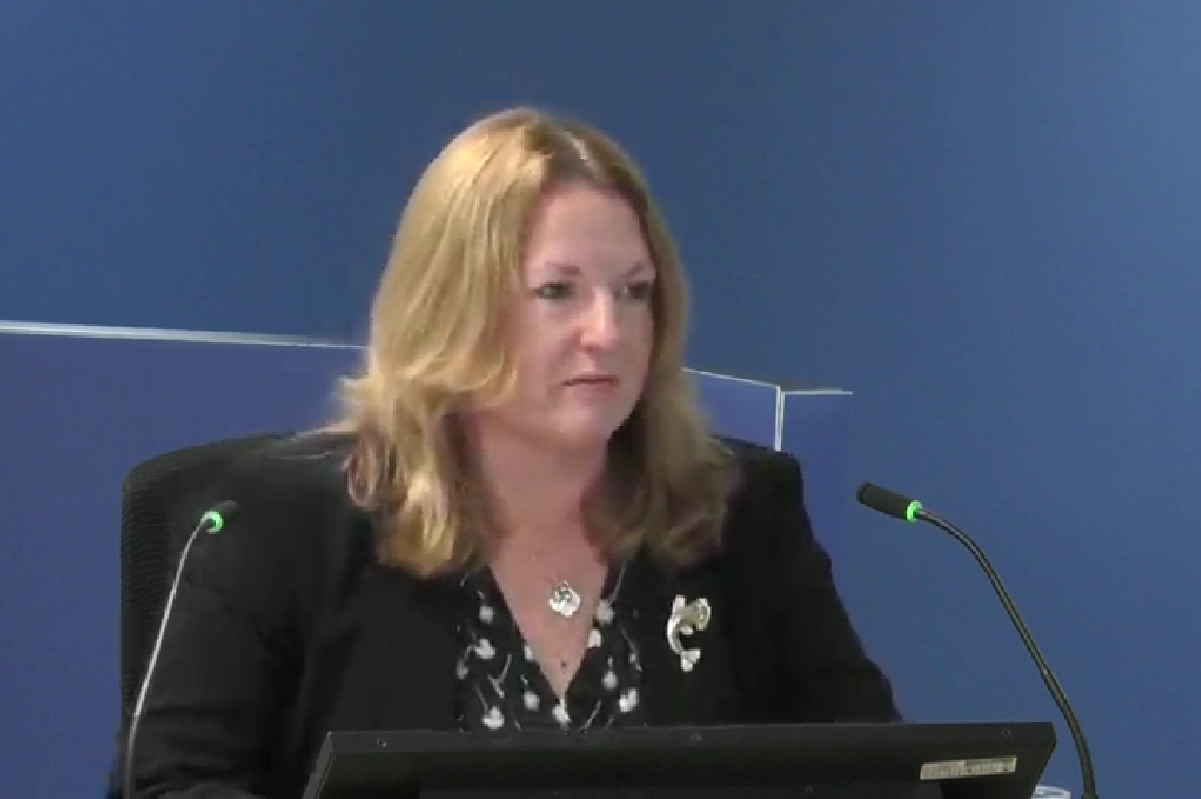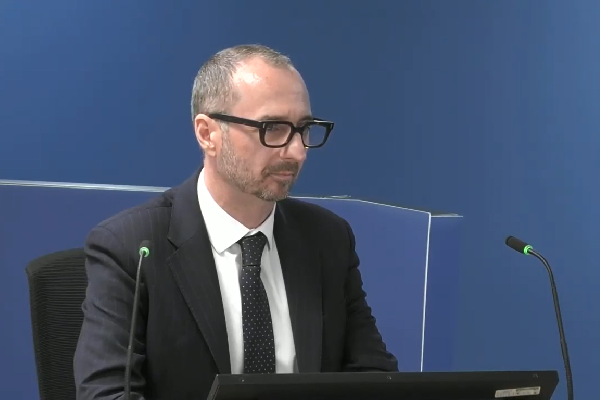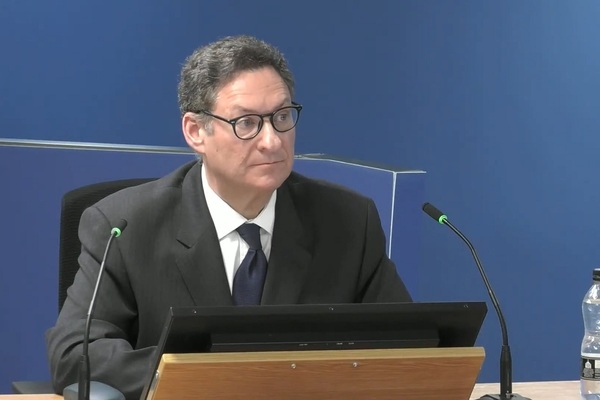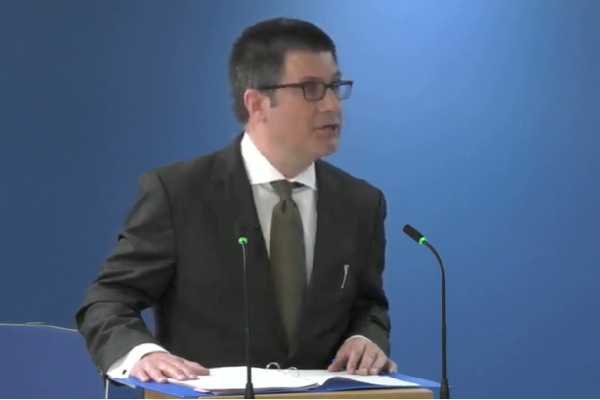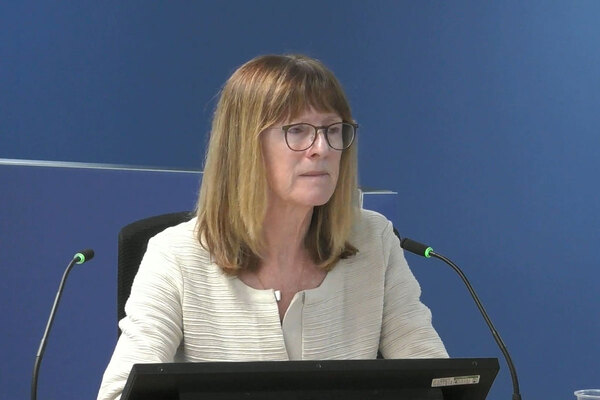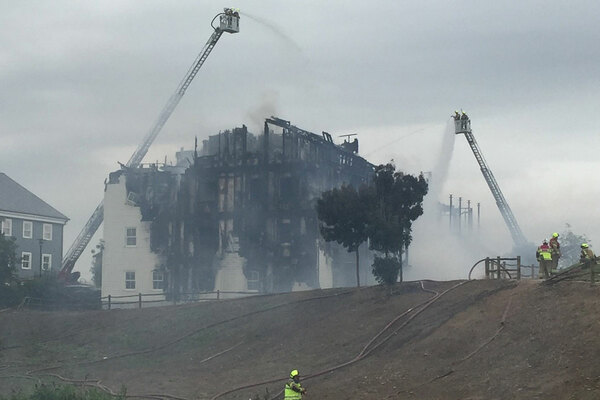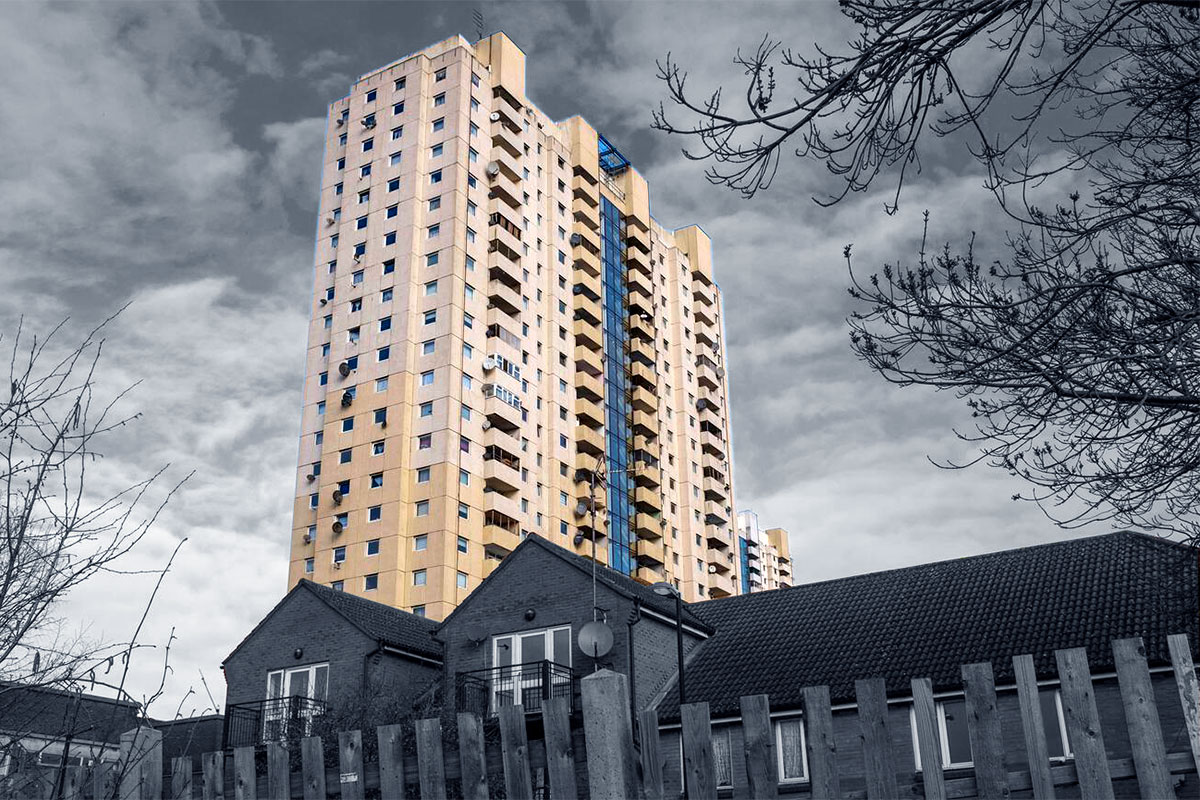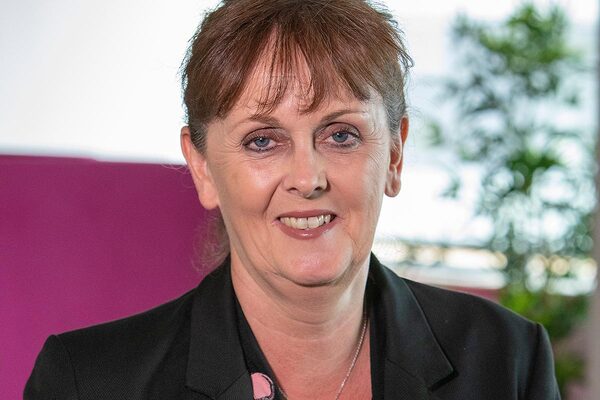Residents displaced by Grenfell fire left sleeping rough after blaze, inquiry hears
Residents forced to move out of their homes by the Grenfell fire slept rough in the estate surrounding the tower as the council failed to communicate the availability of temporary accommodation, the inquiry heard today.
Laura Johnson, who at the time was director of housing at the Royal Borough of Kensington and Chelsea (RBKC), gave evidence today on the council’s struggle to provide emergency accommodation to those who fled the tower and surrounding low-rise blocks.
The inquiry heard how people who were ordered out of homes near the tower – including vulnerable residents and families – spent the first night after the fire sleeping rough and how traumatised families were left in hotel rooms for days without being contacted.
As well as those who fled the burning building, the fire displaced hundreds of people from low-rise finger blocks connected to the tower, known as the Walkways, who were told to move by police and were then unable to return to homes inside the police cordon.
By the afternoon of 14 June, the day of the fire, 845 of these residents were unable to return to their homes.
Ms Johnson said that the council asked these residents to stay with “friends or family in the first instance” and that “only elderly or vulnerable” residents from this group would be offered hotel accommodation, with families with children later added to the list.
She said that the “sheer volume of people that required accommodation” meant the council had to prioritise those who were “vulnerable or had nowhere to go”.
However, she accepted that this was not always clearly communicated – and the inquiry heard witness statements from an 84-year-old man who was not given emergency accommodation and a father who was denied access to a rest centre when he sought powdered milk for his infant son.
The council ultimately used the Westway Leisure Centre as overnight accommodation for those from the low-rise blocks, but some spent the night sleeping outside the tower.
A log for the council’s command centre records British Red Cross staff noting that at 11.30pm on the day of the fire they had “seen people sleeping on the streets who don’t appear to know about Westway being a relief centre overnight”.
Other records note people sleeping rough on a street near the tower. A local authority staff member on the scene said he had asked police to check on them but “police said [they] don’t have the capacity to send an officer” as they were “winding down”.
A separate log prepared by Kensington and Chelsea Tenant Management Organisation (KCTMO) records incidents of residents sleeping in the park near the tower, under a flyover on the estate and a mother with two children who slept in a car.
“So drawing that together… would you now accept that there were a number of displaced Walkway residents, some of them families, some potentially vulnerable, who had nowhere to stay for that first night and perhaps some of the later nights?” asked counsel to the inquiry Dermot Keating.
“Yes,” replied Ms Johnson.
“Do you accept that was in part a consequence of this passive approach by RBKC and poor communication regarding the eligibility criteria, both internally and externally, regarding temporary accommodation?” asked Mr Keating.
Ms Johnson said she did not believe the council’s approach had been “passive” but did accept that “there were people who unfortunately did not did not receive the level of care that they should have done”.
Properties in the Walkways were flooded with water used to fight the fire, doors were broken where police had forced entry, and there was no heating, hot water or cooking facilities because the estate’s communal boiler, which was in the basement of Grenfell Tower, was damaged during the fire.
However, RBKC decided the next day, 15 June, that residents from these blocks were to be moved back home “as soon as possible” despite KCTMO staff raising concerns about the condition of the properties.
“Do you think those concerns should have been taken into account and heeded?” asked Mr Keating.
Ms Johnson said the “sheer volume” of accommodation required meant that “either people can go home and realise that it’s far from perfect or that they can stay in an emergency rest centre”.
“It’s a very difficult decision to take when you’re looking for hundreds and hundreds of units of accommodation in a very busy capital city,” she said.
A document from a meeting on 15 June shows that Ms Johnson said she had “hotels to accommodate up to 20 families” from the Walkways and she would “house the vulnerable or those with children without hot water, but the rest will have to manage”.
Earlier Ms Johnson had explained the challenges faced by the council in booking hotel accommodation for residents who had fled the tower.
In some instances, the council was unable to pay and residents were told at short notice that they had to check out of the hotel, or families were moved at short notice because bookings expired.
In many cases, the first time the residents were told of this was by the hotel management, with no communication from RBKC.
“Would you accept that this was highly disruptive and negatively impacted those who had been placed in those hotels initially?” asked Mr Keating.
“Yes,” replied Ms Johnson.
Families also had to make their own way from the tower to hotels, which in some instances were many miles away in neighbouring boroughs. One survivor required a lift from a stranger to make the trip.
Once there, large families found that they had been placed in single rooms, those with babies were not provided with cots and those with elderly relatives with conditions such as dementia were left without support.
“Do you accept that in those first seven days… a significant number of those placed [in hotels] did not have their needs sufficiently or properly catered for?” asked Mr Keating.
“We did our very best to try and place people somewhere in a very difficult situation and we didn’t get it right on every occasion. And for that I can only apologise because it certainly wasn’t the intent,” Ms Johnson replied.
The inquiry also saw an email from a housing officer at Hammersmith and Fulham Council, which raised concerns that survivors who had been placed in a Premier Inn in their borough had not been contacted by RBKC.
“There are 12 families who had not been contacted by Kensington and Chelsea since placement or six days ago. We were the first to visit them at their hotel,” he wrote.
“They have no idea regarding what happens next. They’ve not been provided with contact details for Kensington and Chelsea. They received two meals per day, breakfast and dinner, but not have not received any cash subsistence.”
“Do you acknowledge that this shouldn’t have happened and leaving these families in this position was unacceptable?” asked Mr Keating.
“Yes, I acknowledge it must have been extremely difficult for those families to be left in that state of limbo, not knowing what was going to take place next,” she said.
“‘Abandoned’ is a word that the inquiry’s heard to describe how those placed in hotels felt,” said Mr Keating. “Do you accept, both at hotels within the borough and outside the borough, that communication and contact with those people in hotels was deficient?”
“I acknowledge that we could have done more to contact those families,” she said. “It was a very pressured environment… and we didn’t give enough attention to the people that had been placed and giving them information and updates about what they could expect.”
The inquiry’s focus for this module is strictly limited to the immediate days after the fire, which means it is not looking at the wider programme of finding permanent homes for these residents – a painful process that took several years to complete.
Ms Johnson was asked about the promise made by central government that all survivors would be offered a new home within three weeks, which she said was “an enormous waste of everybody’s time”.
“I categorically stated both to the housing minister [Alok Sharma] when he came to see me… that there was no way that we were going to rehouse everybody who needed rehousing within three weeks,” she said.
“It was not the right approach to take with people who were traumatised and had come out of the most awful situation. What they needed was a considered and thoughtful response about what we could offer them and where they would like to live… What they needed was a compassionate and considerate response. What they didn’t need was a target from central government that wasn’t achievable.”
The inquiry continues, with evidence from the council’s former chief executive Nicholas Holgate beginning tomorrow.
Ms Johnson has previously given evidence about the council’s actions in the build-up to the fire – particularly its failure to replace self-closers on flat entrance doors following enforcement action from the London Fire Brigade.
Sign up for our weekly Grenfell Inquiry newsletter
Each week we send out a newsletter rounding up the key news from the Grenfell Inquiry, along with the headlines from the week
Already have an account? Click here to manage your newsletters
